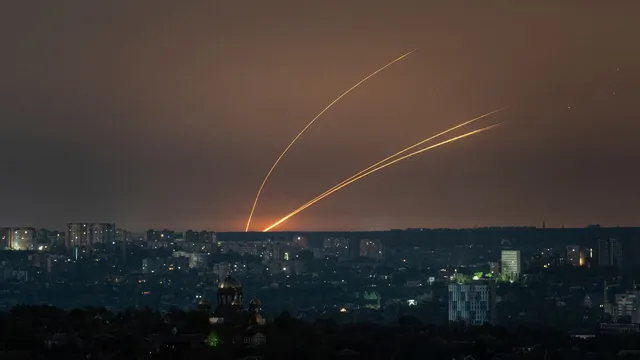
European countries indirectly export to Russia amid rising sanctions
2025-06-23 15:07- Karel Svoboda stated that European nations are involved in indirect exports to Russia.
- Exports to Turkey and Central Asian countries surged after the beginning of the war in Ukraine.
- The investigation by the Czech Ministry of Industry and Trade highlights the widespread issue of sanction circumvention.
Express your sentiment!
Insights
In Prague, Karel Svoboda from the Institute of International Studies at Charles University addressed the ongoing issue of European countries indirectly exporting goods to Russia. He emphasized that this trend isn't confined to specific nations, such as the Czech Republic or Germany, but rather encompasses nearly all of Europe. Since Russia's invasion of Ukraine in February 2022, there has been a notable increase in exports to Turkey and Central Asian states, regions being leveraged as transit points for goods destined for Russia. The Ministry of Industry and Trade (MPO) in the Czech Republic has confirmed it is investigating reports regarding companies allegedly circumventing sanctions by supplying machinery to Russia for weapon production. Ukrainian President Volodymyr Zelensky raised concerns about the involvement of 13 German and eight Czech companies, although he did not publicly identify these entities. The MPO is now tasked with understanding the full scope of this issue and potentially identifying those companies involved in such trade practices. Svoboda highlighted that goods are frequently rerouted through nearby countries, which allows exporters to bypass direct sanctions aimed at Russia. He believes companies should be more diligent in tracking their products' final destinations, especially in the current geopolitical climate.
Contexts
The impact of sanctions on Russian trade has been substantial, affecting various sectors of the economy and altering trade patterns significantly. Since the implementation of sanctions in response to geopolitical tensions, particularly regarding actions in Ukraine and alleged interference in various global incidents, Russia's export markets have faced intense pressure. Key sectors such as oil and gas, which are critical to the Russian economy, have seen complications in access to Western technology and investment. Consequently, the sanctions have forced Russia to seek alternative markets, with a focused pivot towards countries like China and India. This shift is indicative of a broader reorientation of trade and investment partnerships, impacting the dynamics of global commodity flows as traditional buyers reconsider their reliance on Russian resources. Moreover, the sanctions have prompted a series of countermeasures from Russia, ranging from retaliatory tariffs to the implementation of import bans on certain goods. These economic strategies aim to shield domestic industries from external pressures while also sending a message of resilience against Western influence. However, domestic production capabilities are limited in many cases, meaning that the effectiveness of these measures is often constrained by reliance on imports of both intermediate goods and technology. The overarching challenge for Russia is to develop a self-sustaining economy that minimizes exposure to the consequences of sanctions, while still meeting its domestic consumption needs and commitments to international markets, especially in natural resources. The repercussions extend beyond immediate economic damage; long-term effects include a potential deindustrialization of key sectors due to the inability to access essential technologies for modernization and efficiency improvements. The trade isolation exacerbated by sanctions has led to increased trade with non-Western countries, altering the traditional landscape of international commerce. This rebalancing has brought both challenges and opportunities for Russia; navigating these requires strategic geopolitical alignments and robust economic policies. Furthermore, Russia's efforts to maintain competitiveness in the global market underline the urgency to enhance its technological capabilities in areas less susceptible to sanctions fallout, such as agriculture and defense industries. In summary, the sanctions have fundamentally reshaped Russian trade by crippling traditional trade networks while forcing the nation to adapt rapidly to an evolving global economic landscape. The pivot towards Asia represents both a survival strategy and a new paradigm in international trade relations. The ability of the Russian economy to weather these sanctions will depend on the successful implementation of domestic reforms, the cultivation of alternative trading partners, and the resilience of its industries to innovate in the face of continued external pressures. As the geopolitical climate continues to shift, understanding the impact of these sanctions will remain crucial for assessing Russia's future economic trajectory.